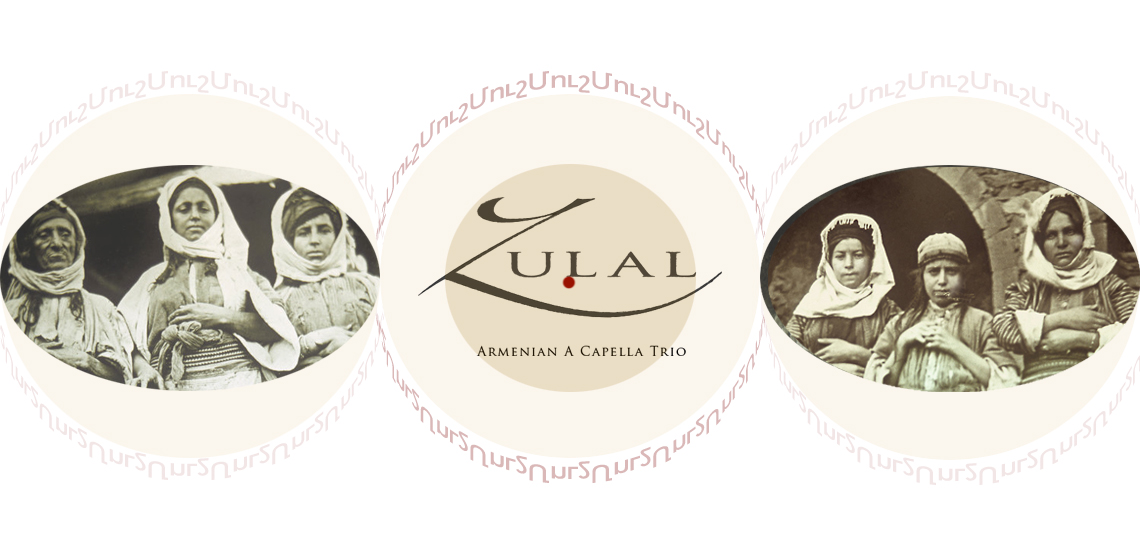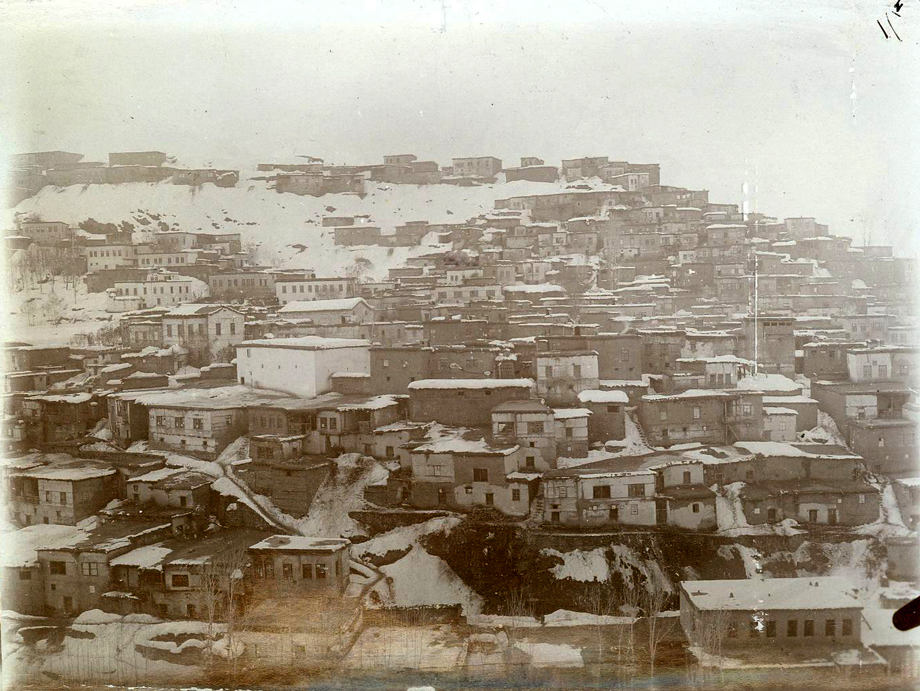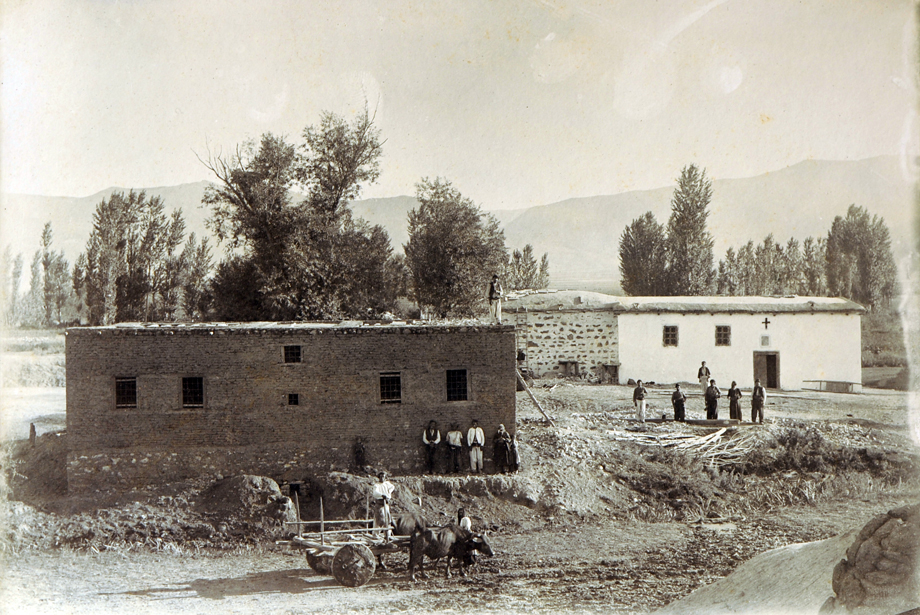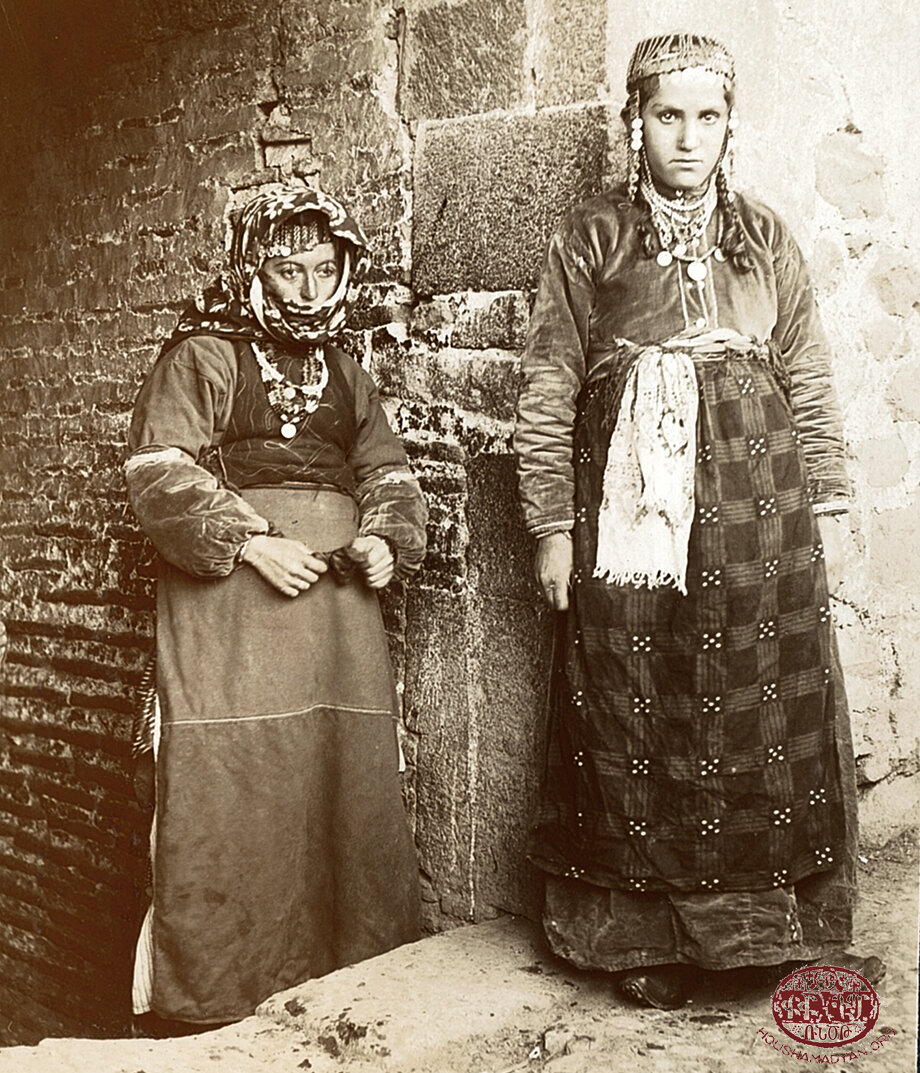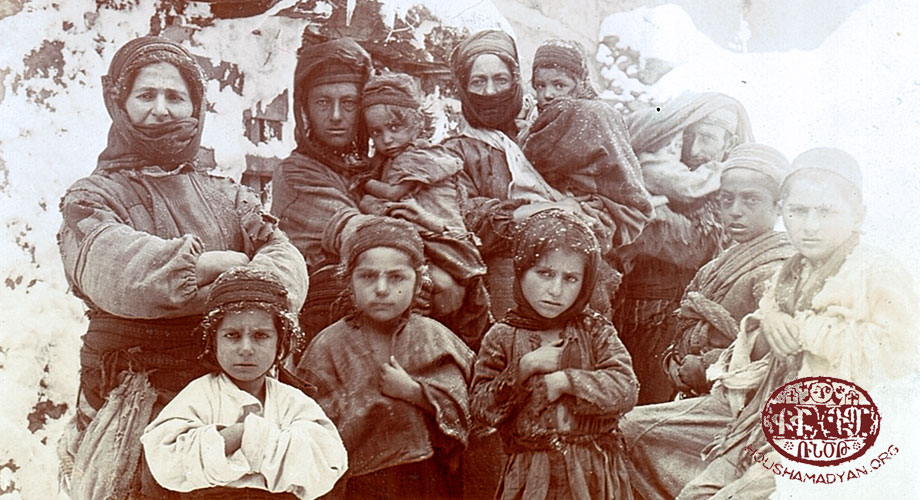Moush Songs - Zulal Trio

Zulal, which means “clear water,” is a NY based Armenian a cappella trio that features Teni Apelian, Yeraz Markarian, and Anaïs Tekerian. The trio rearranges and reimagines traditional Armenian folk melodies for stage and recording. Performing since 2002, Zulal has sung at venues such as the Kennedy Center’s Millennium Stage, the Smithsonian Folklife Festival, the Metropolitan Museum of Art and Carnegie Hall’s Zankel Hall. In addition to performance and arrangement, Zulal also creates soundtracks for film and theater and offers educational workshops for young audiences.
Zulal celebrates the trials and joys of old Armenian village life, from the echoes of loss to the enduring vibrations of dance and celebration. Girls cast fortunes by the moon’s light, morning smoke rises from the tonir, young brides weave golden threads through their hair as others spin wool into gossip. These images of the past come to life in Zulal’s arrangements, hearkening back to a simpler time, providing tokens of comfort in our increasingly complex, modern world. Explore Zulal further at www.zulal.org.

1. Gago Mare
Traditional, sung here in the different dialects and melodies from Moush, Van, and Mogs.
This unique arrangement by Zulal combines four different dialects and melodic variations of a song in which a girl asks her family to arrange her marriage. She says, “Father, Mother, have me married. I’m as pretty as a red rose, or even a narcissus flower. I’m as sweet as an elegant crane from the wild.” Being “marketable” for those days, she is picky. She does not want the merchant, nor the tailor, nor the teacher, for those men will lose themselves in coins, threads, and letters, and forget her. She longs for the shepherd boy who will feed her milk from a black ewe, and lull her to sleep in the mountain wind.
Melody 1: Mogs
Gago Mamo garka zis Ham gyul’v, ham vart, ham nargiz | Father, Mother, have me married (I’m as pretty as a) red rose and narcissus |
Melody 2: Moush/Daron
| Yesi chem arner varjabed Gerta tbrots morna zis Ham gyul ham vart ham nergiz Cholee groong ergen viz Yesi chem arner karnarar | I won’t take the teacher He’ll go to school and forget all about me (I’m as pretty as a) red rose and narcissus A wild long-necked crane I won’t take the shepherd |
Melody 3: Van
Jan oy jan oy jan oy jan Charchi martoo mi dek zis | (Exclamation of profound love) Don’t give me to the merchant |
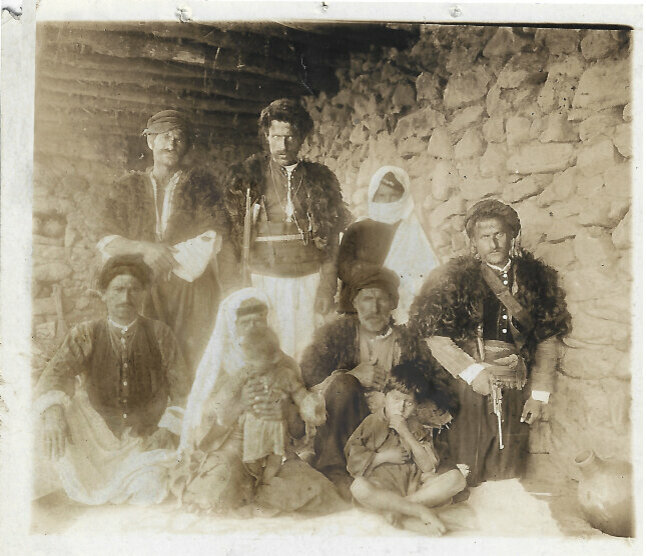
Gago, Mare garke zis Hoy hoy hoy hoy, hoy nargiz Hoy hoy hoy hoy, hoy nargiz | Elders, set me up Oh, oh, a narcissus flower |

2. Katser Im Shugen [I Went to the Market]
A humorous song, traditional
Three young women recount stories from a day at the market where it was the men, rather than the produce, who caught their eye. One woman goes to buy apricots, (dziran) and instead, sees [the handsome] Mihran. She says, “Mihran, if your destiny is already written out for you and does not include me, may you forever remain wifeless!” The second woman wants to buy needles (asegh) and instead, sees [the irresistible] Parsegh. The third sets out to buy parsley (maghdanos) and instead, sees [the ellusive] Boghos…
Katser im shoogen
Arer im dziran
Tsen dughen garnim
Anoonn e Mihran
Mihran, jan, Mihran, Mihran
Gudag choonenas
Te doo zis charnis
Angunig munas!
Katser im shoogen
Arer im asegh
Tsen dughen garnim
Anoonn e Parsegh
Parsegh, jan, Parsegh, Parsegh
Gudag choonenas
Te doo zis charnis
Angunig mnas!
Katser im shoogen
Arer im maghdanos
Tsen dughen garnim
Anoonn e Boghos
Boghos, jan, Boghos, Boghos
Gudag choonenas
Te doo zis charnis
Angunig munas!

3. Kele Lao (Come, Let Us Go, My Son)
A song of yearning from Talin
This song is the resonating voice of the Armenians who have been displaced and long for their ancestral home. The song recalls old village traditions and beliefs, in an attempt to capture the essence of days long gone.
Come, let us go, my son. Let us go to the fields where there are healing herbs, where birds sing beak to beak, where sparrows clap wing to wing. Without us, the stones shed tears. Our mothers and fathers are there. Their sweet voices are calling. Can we hear them and still not go? Come, my son, let us go to our homeland.
Kele lao, kele ertank mur ergir, Hon arosner gudoots gudtsi gu yerkin, Mer hern endegh, mer mern endegh gu dzaghgin. Kele lao, kele ertank mur ergir | Let’s go, my son, let’s go to our homeland, The bustards sing beak-to-beak, Our father and mother bloom in that land Let’s go, my son, let’s go to our homeland |

4. Msho Keghen [The Village of Moush]
A lyric song from Moush
Musho Keghen yergoo hars Musho tashden man ergel Hay nay nay nay… Musho keghen yergu ked Hay nay nay nay… | In the village of Moush, there are two brides Hay nay nay… Hay nay nay… In the village of Moush, there are two rivers Na na na… |
